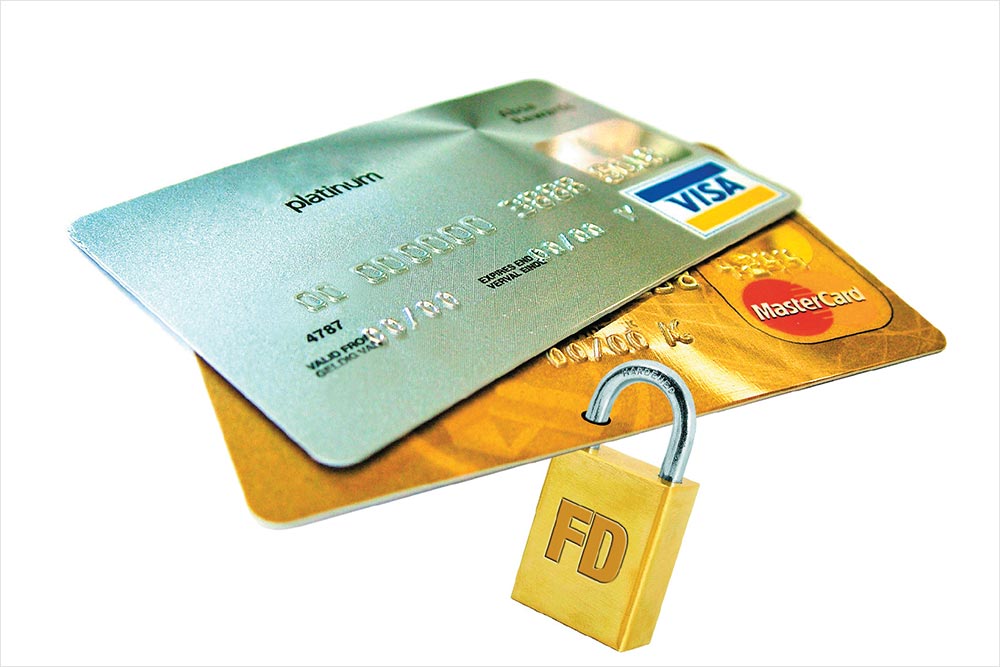When 30-year-old Nidhi Singh, a human resource recruiter with a leading telecom company in Mumbai, wanted a credit card to supplement her emergency travel funds for a trip abroad, she was surprised and dismayed to find that none of the banks would give her one — she had a low CIBIL (Credit Information Bureau) score, the rating of her creditworthiness based on her financial history. The culprits were a late payment on a personal loan and a one-time settlement on an earlier credit card. So it was that banks viewed Singh as a risky customer even though she had a secure job and steady earnings. Customers like Singh can now get ‘secured cards’ linked to their fixed deposits from leading banks like State Bank of India (SBI), which launched them in tier 2 and tier 3 cities in September, ICICI Bank and DCB (rolled out a couple of months ago). Axis Bank and HDFC Bank, too, offer FD-linked cards.
“A secured card is a good way for customers to redeem past credit mistakes,” points out Arun Thukral, chairman, CIBIL. All that’s needed is a KYC form, a picture and an FD receipt. “With this card, we can expand the credit card customer base to include those without a steady income stream such as stock brokers, SME and micro business owners and homemakers,” explains Abhijit Bose, head of retail assets and strategic alliances, DCB Bank.
It really is simple. A customer opens a fixed deposit (usually upwards of Rs 20,000) with a bank and gets a card, the credit limit for which is set at around 80-90% of the FD’s value. The card is valid for the FD’s duration and it functions like any other credit card. “The bank only adjusts the outstanding amount owed against an FD if a customer turns delinquent [defaults payments permanently despite reminders and due processes],” says Kadambi Narhari, CEO, SBI Cards. The SBI Cards portfolio has about 10% secured cardholders. Customers continue to earn FD rates of interest whereas banks typically charge lower monthly interest rates on them — SBI, for instance, charges 1.95% interest on FD-linked cards as opposed to 2.25% on its ‘regular’ plastic.
After the credit crisis in 2008, banks hit the break on credit card issuances that hit a high of 27 million cardholders in 2007-2008 — defaults hit a high of 20-22% and banks like ICICI, one of the most aggressive issuer of cards in India, had to clean up their portfolio. By FY12, the same had come down to 17 million as per RBI data.
The secured card is usually the first card that one takes in the US, a developed market for credit cards, to start building one’s credit history. Indian banks are now pitching the same to clients with low CIBIL scores, over-the-counter, or on email. Various banks, like SBI and DCB, have trained scouts on market visits and ICICI began offering instant FD-linked cards to net banking customers only recently. Meanwhile, Nidhi Singh has availed a secured card and is set to have a worry-free trip.











